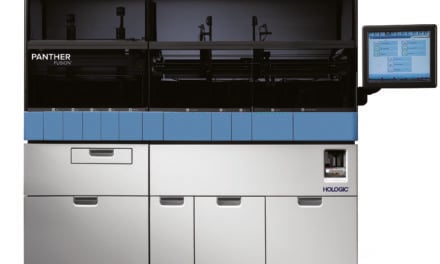Cancer diagnostics company adds three clinical advisors and two board members to support commercial growth and platform expansion.
Dxcover, a clinical-stage oncology diagnostics company, has appointed five new leaders to its scientific advisory board and board of directors as the company prepares for commercial expansion of its multi-cancer testing platform.
The Glasgow, Scotland-based company announced the strategic appointments to strengthen expertise across oncology specialties, clinical statistics, artificial intelligence, and commercial diagnostics as it advances its Multiomic Spectral Analysis platform (MOSA-Dx).
Clinical Expertise Across Cancer Types
Three clinicians joined Dxcover’s scientific advisory board, bringing specialized knowledge in neuro-oncology, gynecological cancers, and pancreatic oncology.
Professor Katy Peters, professor of neurology and neurosurgery at Duke University Medical Center, adds expertise in brain cancer care pathways and clinical trial design. Professor Emma Crosbie of The University of Manchester and NIHR Research Professor focuses on early detection of endometrial and ovarian cancers, while Professor William E Fisher, vice chair of clinical affairs at Baylor College of Medicine’s Elkins Pancreas Center, brings insights into pancreatic cancer diagnostics.
The new advisors join existing board members Professor Paul Brennan from the University of Edinburgh and Dr Luke Pike from Memorial Sloan Kettering Cancer Center, who have contributed to clinical trials and US market strategy development.
Commercial Leadership for US Expansion
Two new non-executive directors will support Dxcover’s US market entry and revenue growth. Marc Jones, CEO of Altoida, brings 25 years of experience leading diagnostics and AI-powered platforms through FDA clearance and commercial scale-up. His background includes developing digital biomarkers for neurological diseases using artificial intelligence.
Stacy Chick, who has advised Dxcover since 2021, joins the board with experience transitioning diagnostic innovations from research to commercial stage. As former chief commercial officer for Inivata and Kiyatec, she led market development and scaling operations at optimal reimbursement rates.
Platform Technology and Market Position
Dxcover’s PANAROMIC Platform uses multiomic spectral analysis to detect cancer presence with small liquid sample volumes and one-day turnaround times. The company’s AI algorithms are built on data from more than 9,000 patients and 250,000 spectra.
“Their deep clinical insight and strategic expertise will be instrumental as we expand access to our platform, broaden its diagnostic menu into additional cancer types, pursue regulatory milestones, and deliver our technology into the hands of physicians and their patients globally,” says Professor Matthew J Baker, CEO and inventor of Dxcover, in a release.
The technology targets early-stage detection of solid tumors and is designed for triaging high-mortality, hard-to-diagnose cancers in high-risk populations. Dxcover operates from headquarters in Glasgow with US operations in Nashville, Tennessee.
The appointments come as the company prepares for its CLIA rollout and broader commercial launch in the US market, where blood-based cancer screening tests face increasing competition and regulatory scrutiny around clinical utility and reimbursement pathways.
ID 40595020 | Board © Rawpixelimages | Dreamstime.com





